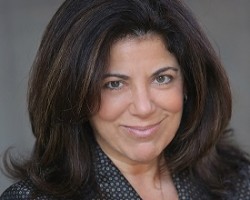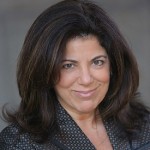
By Susan Chana Lask, Esq.
Recently a bank’s new foreclosure attorney complained to me about the now defunct Baum Foreclosure Mills files as so slovenly that, and I quote, ““The way they coded, you have no idea what this file looks like, it makes no rhyme or reason, conference-note, conference-note aom…” The documents do not exist to support the foreclosure complaints Baum filed years before that remain on the courts’ dockets. The latest set of attorneys representing the bank’s with those slovenly files apparently have marching orders to do whatever it takes, even fabricate facts, to keep the shadow docket alive. Their present attorneys defending the banks position now file affidavits attesting that they know the Bank has the Note because….well, ummm,…embarrassingly…not because the attorneys have personal knowledge but just because they are attorneys? Here’s what such an attorney’s affidavit looks like in opposition to a homeowners motion for summary judgment filed that the banks has no standing to sue:
“the Note and the Mortgage was subsequently transferred to Plaintiff (the bank) prior to the commencement of the foreclosure action pursuant to the Pooling and
Servicing Agreement…”, “…your affirmant has personal knowledge that the original endorsed Note does exist.”,” “Plaintiff is in possession of the Note…prior to and at the time of commencement of the subject Action (sic)”,“…there is no question concerning Plaintiff’s possession of the original Note and the original Mortgage” and “Plaintiff is in possession of the original endorsed Note and has been since the inception of the PSA…”
The law holds an attorney’s affirmation is improper and fatal to oppose a summary judgment motion. Giaccio v. Kiamesha Concord, Inc., 22 A.D.2d 723, 253 N.Y.S.2d 168 (3d Dep’t 1964), Zuckerman v. City of New York, 49 N.Y.2d 557, 563, 427 N.Y.S.2d 595, 404 N.E.2d 718. There is a high evidentiary standard needed to oppose and someone with personal knowledge of the facts is needed, to wit:
“While, as we have held, the affidavit need not be made by the plaintiff (Sznukowski v. B. F. Goodrich Company, 18 A.D.2d 861, 236 N.Y.S.2d 413), it must be by a person having knowledge of the facts and must be as good as the kind of affidavit which could defeat a motion for summary judgment on the ground that there is no issue of fact (Sortino v. Fisher, 20 A.D.2d 25, 32, 245 N.Y.S.2d 186, 195). The only affidavit which has been submitted is the obviously hearsay affidavit of counsel. Such an affidavit is insufficient (Keating v. Smith, 20 A.D.2d 141, 245 N.Y.S.2d 909.).”
An attorney’s affidavit is accorded no probative value unless accompanied by documentary evidence that constitutes admissible proof. Zuckerman.
You will also note that the attorney affidavit example above does not assert any personal knowledge of delivery to, or possession by, either the plaintiff bank or any of the other many entities involved. What about the entities involved in the PSA, the trusts, the servicers, and the in between banks and investors, including the FDIC that acts as administrator when the original bank lenders fail. Just where did the Note pass from entity to entity and how? Or were they all transferring air when they decided the mandates of the UCC regarding proper endorsements and transfers did not exist anymore? The above affidavit does not attach nor describe any of the many entities, including the plaintiff bank’s, “regularly maintained records” nor render them admissible as evidence. JP Morgan Chase, N.A. v. RADS Group, Inc., 88 A.D.3d 766, 767, 930 N.Y.S.2d 899 [2d Dept. 2011]; HSBC Bank USA, N.A. v. Betts, 67 A.D.3d 735, 736, 888 N.Y.S.2d 203 [2d Dept. 2009]; Unifund CCR Partners v. Youngman, 89 A.D.3d 1377, 1377–78, 932 N.Y.S.2d 609 [4th Dept. 2011]; Reiss v. Roadhouse Rest., 70 A.D.3d 1021, 1024, 897 N.Y.S.2d 450 [2d Dept. 2010]; Lodato v. Greyhawk North America, LLC, 39 A.D.3d 494, 495, 834 N.Y.S.2d 239 [2d Dept. 2007]; Whitfield v. City of New York, 16 Misc.3d 1115[A], 2007 N.Y. Slip Op. 51433 [U], 2007 WL 2142300 [Sup. Ct., Kings County 2007]; aff’d 48 A.D.3d 798, 853 N.Y.S.2d 117 [2d Dept. 2008].) The affidavit does not state that any “regularly maintained records” show delivery of the Note from anyone. There is no evidence that the plaintiff bank ever had possession of the Note except for the attorney trying to win the case for his bank client saying so because,…ummm, embarrassingly, because he is an attorney so we should believe whatever he says to events that he never was present at, was never a party to and he has absolutely no personal knowledge about
The days when an attorney’s word or even a handshake were good are long gone. The practice of law has become a childish game of who can fool the court the longest based on fabricating facts and misrepresenting the law. Now attorneys’ stooping so low to testify for the very clients they represent by their own conclusory hearsay makes the practice of law just junk.
By Susan Chana Lask, Esq.
Susan Chana Lask is an author, lecturer and accomplished attorney litigating in State and Federal Courts, including the United States Supreme Court for the past 25 years. She is named by the media as “New York’s High Profile Attorney” who consistently makes headlines worldwide and changes history with her controversial dogged lawsuits. Her 2010 lawsuit shut down the country’s most notorious Foreclosure Mill in New York State for the benefit of the public suffering from fraudulent foreclosure filings. In 2011 she appeared before the Supreme Court of the United States with the support of five Attorneys General where she obtained a historical decision that strip searching non-criminal offenders is unacceptable unless they are in the general population. Her 2006 lawsuit against the makers of Ambien resulted in the FDA complying with her demands to change prescription drug warnings to protect some 26 Million consumers. Her cases are monumental and have changed history.
Follow Ms. Lask on twitter
@SusanChanaLask
This article is for informational purposes only. It is not legal advice. You should seek counsel from a licensed attorney if you have legal questions.
© 2010-19 FORECLOSURE FRAUD | by DinSFLA. All rights reserved.




It is long standing and well established an attorney cannot act as both advocate and witness in a …
Oh heck. Your Honor it is true because I say it is true. Now, give us the house.
So if an affidavit by an attorney is basically a lie, then why are judges accepting them? In my foreclosure case they provided an unauthenticated copy of the mortgage and affidavits from the law firm aka foreclosure mill, that’s it. NO affidavits from the bank, servicer, trust, NO ONE. And no note! Yet 3 judges have accepted this. I agree that judges accept whatever attorneys say because well they are attorneys and took an oath, it just proves there is bias especially against pro se’s. This would end if the homeowner’s attorney would threaten to file a complaint and sanctions. If these lawyers start losing their licenses then it would stop.
“There is then in general no rule, but only an urgent judicial reprobation, forbidding counsel or an attorney to testify in favor of his client.” Wigmore on Evidence, Third Addition, Vol. VI, Section 1911, page 606.